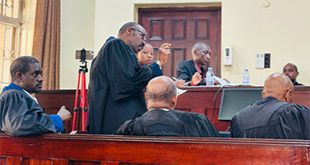
By Ronald Musoke
Mystery over bodies found at Entebbe
Over 5000 people drown in Lake Victoria every year, according to a commonly used statistic, but when it emerged that up to 13 bodies had washed up on beaches on its shores in Entebbe-Uganda after Boxing Day, the nation was shocked. Cornelius Kodet, the elderly owner of Aero Beach told The Independent that for all the years it has been in operation, he had never witnessed such an incident at his beach.
Once in a while when a dead body is brought near the beach, the management always alerts the police and they come and collect it,” he said.
But 13 bodies over the course of two days, was unheard of. Almost all were young men – like 17-year old Haruna Mubiru.

Together with his two brothers; Ausi Nsubuga and Abdul Ssendiwaala and their friends, Mubiru had joined hundreds of revelers at Sports Beach, one of the four popular beaches along a short stretch on the shores of Lake Victoria in Entebbe, Uganda.
It was Boxing Day, a popular public holiday that falls a day after Christmas day, and the beaches were teeming with people.
Apart from guzzling drinks, lazing in the sand and grass, and feasting on platters of grilled tilapia and Nile perch fish, most beach-goers – especially the younger crowds, come to enjoy a dip in the water.
By 6.30pm, Mubiru’s group decided to quit the water. But as they were dressing up, Mubiru told them that he wanted to go back to the water – to wash off the sand. The beach water was still crowded with swimmers and Mubiru quickly got immersed. That was the last time his brothers saw him alive.
As darkness descended, the brothers started looking for Mubiru. They were anxious to get home in Kyebando, a Kampala city suburb which is about 30kms away from Entebbe. Desperate, they called their older brother, Julius Katende, who was supposed to have joined them much earlier but failed.
Katende told The Independent on Jan.08 that he was alarmed but asked his young brothers to remain calm and keep searching. At 8pm the managers sounded the alarm for everyone to leave the water and at 9pm, the security guards ordered the revelers to leave the shores altogether. The brothers continued searching until midnight when they could search no more.
Next day, December 27, Katende and Nsubuga were at the beach early and by 6:30 am were already into the search, including at the other beaches and at the Airport Police. Soon they noticed other groups looking for their own missing relatives.
Katende recalls that a police woman on duty was equally overwhelmed.
“She wondered what exactly had happened the previous day at the beaches,” Katende says.
At around 10am, as they were approaching the Aero Beach Gate, it started to rain for about 45 minutes. Katende says as soon as the rain stopped at around 11am, he started receiving calls from beach staff he had left his telephone number with. Bodies had started popping up in the water. But none was of Mubiru.
Katende says when he learnt that some bodies had been taken to the morgue at Mulago Hospital, he called another brother to go and check. That too did not bring any positive results. As evening set in, they decided to retire and begin afresh the following day.
Katende says on their way back home, someone with whom he had left his telephone contact details and some of Mubiru’s physical attributes called him saying two other bodies had popped up at Sports Beach – the spot where Mubiru disappeared. The brothers immediately headed back to Entebbe. They found their brother’s body this time. Upon seeing the body, the younger brother, Nsubuga lost consciousness. Katende says he remembers seeing blood oozing out of the lifeless body of his brother.
“The stomach was not swollen and he was straight but his chest was tight.”
Mubiru’s body and the others were sent to the mortuary at Mulago National referral Hospital in Kampala. His relatives picked the body the following day and buried the former student of Lazarus SS in Kyebando the same day.
Boxing Day disaster
According to the Police Spokesperson, Fred Enanga, most of the deceased drowned because they were swimming while drunk. But the Boxing Day bodies at the beach shocked Ugandans and questions are still being asked of what exactly happened?
For years these young people have always gone to these beaches but how come they drowned at this particular time? How come almost half the number of the dead are Muslims?
“It is complicated for me to say the reason,” said Robert Ssempijja, a lean, tall man with very light-skin, the manager at Lido Beach, as he struggled to find any possible explanation for the tragedy. But he also said the youth who frequent these beaches are sometimes drunk and rowdy.
“Why do you think all those who died were young men?” he says, “I might have put it bluntly but it is the truth.
“We try to prevent them from going into the lake but they are difficult to control at times; other times, they fight with our security and safety officers.”
But Hajji Nsereko Mutumba, the public relations officer of the Uganda Muslim Supreme Council says he is concerned that alcohol is being blamed in the death of even non-drinking Muslims. “Unless we look at the autopsy reports for each of the Muslim victims, it is difficult to believe those reports,” he said, “All I know is that in Islam, we don’t drink alcohol and we condemn drinking.”
Still, Nsereko says consumption of alcohol in public places is getting out of hand, thanks to the proliferation of small scale industries that are manufacturing this alcohol and packaging it in accessible sachets. “The majority of these young people who patronize these beaches are impressionable and they are bound to do all sorts of things that their peers do in such places.”
“There needs to be more investigation of what happened at these beaches. For instance, were those people supposed to be in that lake swimming?”
“Secondly what caused the stampede and how was it handled?” said Mutumba.
There is a strong belief that the dead were tear-gassed and in the melee that ensued, many were forced to go further into the lake where they could have drowned.
Robert Kayonga, 36, a fisherman based at Kigungu Landing Site was at Aero Beach between 8pm and left at midnight and he remembers seeing many drunken people at the beach playing in the water. He also remembers seeing some chaotic scenes shortly before he left.
Apparently, the police and soldiers from the Uganda army had ordered revelers to leave the water after weather conditions drastically changed and waves got bigger. However, some revelers who were already intoxicated with alcohol refused to leave the water. Brawls ensued in some cases, and teargas is said to have been used in others.
But Kayongo raises another question that has been raised by many people. He says he has been fishing on Lake Victoria for the last six years and has encountered both floating bodies on the lake and experienced a drowning incident. He told The Independent that usually it will take about three days for a corpse to get onto the water surface.
He says a friend of his drowned in an accident as he got entangled with the fishing net as they both went out to lay their nets in the lake. That was in 2013.
“He only came up the surface after three days,” Kayongo said.
So how come the bodies drifted on the beaches less than 24 hours, instead of the three days that many people who are familiar with death on water bodies say is the standard period?
Enanga says the time it takes for a body to surface depends on the water temperatures.
“Between 12-18 hours, if the water is warm, a body can pop out but if the water is cold, it could take up to three days and if it is even extremely cold, it could take up to 10 days to start decomposing.”
“During warm weather conditions, the skin could wrinkle just after 30-60 minutes,” he told The Independent, “With hydration, the body becomes water logged between 10-12 hours and the peeling of the skin could take place after 10-12 days.”
He said the abrasions seen on some of the bodies could happen because the body moves and hits objects such as rocks under the surface of the water.
Enanga told The Independent that the Criminal Investigations Directorate (CID) has been investigating criminal negligence offences against beach managers.
The Police blamed owners and managers of beaches for abandoning prescribed safety guidelines when they allowed revelers to swim in the lake beyond 6:30 pm; lacked life jackets for revelers, lifeguards, failure to record the names and numbers of visitors on their beaches among many safety guidelines.
Yet despite these theories, the managers of the affected beaches remained skeptical about the incident.
In a meeting called by the Entebbe Municipal Authorities and Police, the beach managers said they believed the bodies could have been brought from different areas and dumped near their beaches or drifted with the lake waves from afar.
They also doubted the circumstances the victims drowned basing their argument on the fact that there was no person who complained of a missing person in the period.
But Enanga told The Independent on Jan. 08 that autopsies for each of the 13 bodies concluded that the cause of death was “consistent with drowning.” Dr. Moses Byaruhanga, the Police pathologist supervised the autopsy on the bodies.
Enanga said apart from having ‘voluminous’ lungs, most of the victims did not show physical injuries such as fracture of the limbs, skulls or rib cages.
“Haruna Mubiru’s autopsy had no external injuries, no fractures, and no brain hemorrhage; but there was rigor mortis (stiffening and shrinking in the lower limbs) while his soles and palms were wrinkled,” Enanga said.
He also had post-mortem blood in the trachea which is consistent with congested and distended lungs.
The police publicist said, Mubiru’s alongside two other victims’ blood samples, stomach contents, parts of the liver and kidney were taken to the Government Analytical Laboratories at Wandegeya to conduct toxicology tests.
Enanga said the tests were requested for by the Police to find out if there was probable drug or alcohol abuse. He could not say when the results would be out.
Overwhelming numbers
Investigations by The Independent show that the beaches received more visitors than usual.
Michael Ssenabulya, 22, described how he, alongside 60 youthful colleagues from Kamwokya, a Kampala suburb, was among the hordes that went to the beaches. He told The Independent that although he has always gone to the beaches, he had never seen such crowds.
He says his group set off at around 2pm but the journey of 40 minutes took five hours. They arrived at Sports Beach at 7pm owing to traffic jam along the 35 km route to Entebbe.
Ssenabulya said finding space for their two hired mini-bus taxis became a problem as both sides of the road along these four beaches had been taken. They left at around midnight.
Ssenabulya said he was not surprised when news of people drowning at these beaches started trickling in, a couple of days later.
“There were simply too many people at those beaches including goons,” he said.
Ssenabulya says at some point, he heard people say they had left Aero Beach because of chaos. Apparently the soldiers guarding the beach had asked the people to start leaving but he is not sure whether teargas was used or not.
But Kodet says since Boxing Day marks the peak of end of year festivities, they always prepare for big crowds.
“We solicited help from security and both police and over 20 soldiers were around the beach to make sure that everything goes on smoothly,” Kodet said, “We also reached out to the ambulance services and we got their telephone contacts in preparation for any eventualities.”
Wasswa Kateregga who is in charge of general duties at Aero Beach also told The Independent that even when more people turned up than they expected, management quickly called in reinforcement from the Uganda army at around 2pm.
“We received 23 more officers who were fully armed,” he said, “They remained around until 2am when I left after monitoring that everyone was out.”
New rules
When The Independent returned to the four beaches again on Sunday Jan. 10, three beaches (Sports, Lido and Spennah] were closed. Usually the beaches would be busy on the weekend. Only Aero Beach was open. But still there were probably a couple hundred revelers by the time we left at around 4pm.
Asked why Aero Beach was in operation while the neighbouring beaches remained closed, Kateregga said Aero Beach management had fulfilled the requirements both the Municipal Authorities and Police had asked them to put in place.
Vincent Kayanja, the mayor of Entebbe Municipality also told The Independent that the authorities did not close the beaches but there are now strict regulations when it comes to recreational activities in the water.
“Until all the underwater audits are finalized that will remain the case,” he said.
Eunice Biira, a university student and her sister were back at Aero Beach on Jan.10. The waves were slapping the shores as furiously as usual and loud music was blaring out of loud speakers. But the gloom was unmistakable.
“People are still concerned about what happened,” Biira told The Independent, ““This beach is normally busier than it is today.”
Kato Mutajazzi, an ardent beach-goer also showed up on Jan. 10. He said he was consoled by the new regulations.
“Let people visit these beaches and have fun but in a way that does not compromise their lives.
“What you see there is water but very few know that water kills. I am glad that there are now safe guards on these beaches,” he said, as we both stared at the shining new signagejust a couple of metres from our table. It reads, `Notice. Lake Kills”.
New beach regulations
Following the drowning incident, the beaches were temporarily closed. But in a meeting, the beach owners, Entebbe Municipal authorities including the mayor, and the district security committee headed by the RDC, agreed on minimum safety requirements for the beaches to operate.
 The Independent Uganda: You get the Truth we Pay the Price
The Independent Uganda: You get the Truth we Pay the Price





 Anthony Natif notes from Court: Uganda Vs Molly Katanga and Others 13/October/2025
Anthony Natif notes from Court: Uganda Vs Molly Katanga and Others 13/October/2025